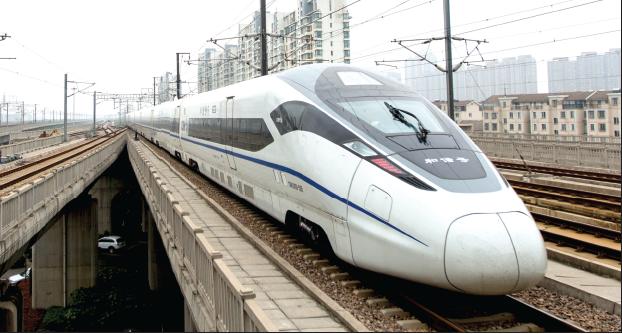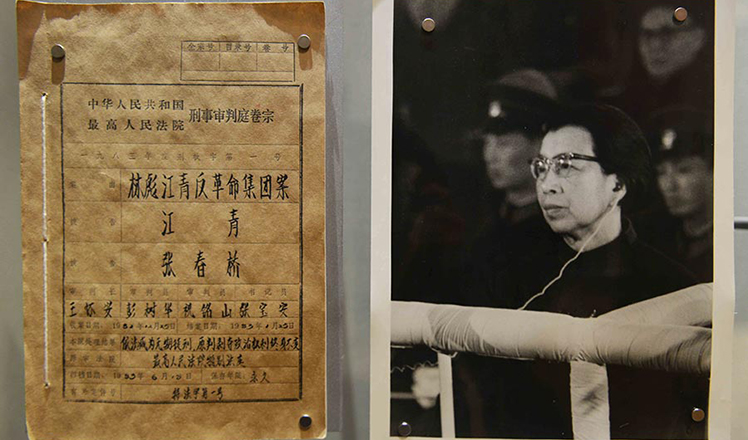Bombardier soars in China
Updated: 2016-01-10 23:09
By Eddy Lok(China Daily Canada)
|
||||||||
Already a world leader in rails and aircraft, the Canadian firm is opening a new chapter in China, Eddy Lok reports.
 |
|
The CRH380D bullet train made by Bombardier Sifang (Qingdao) Transportation Ltd departs from Kunshan south station, Jiangsu province in April. |
Already with a history of doing business in China spanning decades, Canadian airplane and train manufacturer Bombardier sees an even bigger potential ahead for cooperation between the two countries, especially now with the “trade push” set in motion by the new Liberal government.
The importance of the China market was not only recognized more than 50 years ago by Montreal-based Bombardier’s Chinese division in China itself, but by ongoing sustainable cooperation and expansion that could stretch far into the future.
Collaboration between Bombardier and China goes beyond technology transfer, said Jianwei Zhang, president of Bombardier China, who wants China to look into opportunities with the Canadian business world where many high-tech companies are to be found.
“From a business point of view, Canada and China are complementary in many areas, especially in rail transportation, aviation, mines, education, etc. There is a big potential for cooperation between Canadian and Chinese enterprises,” Zhang told China Daily.
Bombardier deals with transportation technology and expertise in aerospace and rail transport and invests in a wide range of core-related transportation products and services in China. It is a ready and willing partner in helping to develop China’s Belt and Road Initiative, according to Zhang.
The Initiative extends beyond infrastructure construction to include promoting financial integration, use of the RMB by foreign countries, creating an information Silk Road linking regional information and communications technology networks and lowering barriers to cross-border trade and investments.
A new impetus to this end was made by new Canada Prime Minister Justin Trudeau telling President Xi Jinping, on the sidelines of the G20 Summit in Turkey in November, that he wants a fresh approach and new era for greater cooperation and mutual benefit for both countries in the years ahead.
Zhang, who heads Bombardier China with eight wholly foreign-owned enterprises and seven joint ventures and about 6,000 employees in China, said the Canadian company has been playing a significant role in the development of China’s rail and urban mass transit.
With China's rapid development in the transportation sector, new areas for possible cooperation have surfaced and, according to Zhang, Bombardier is now recognized as the most successful foreign company in the rail transportation sector in China.
“Bombardier is a unique foreign company which is qualified to supply, through its joint ventures, high-speed passenger trains, metro cars, monorail systems and APMs (automated people movers),” he said.
He said Bombardier’s success, despite strong competition from domestic Chinese railway producers like China North Rail and China South Rail, hinges on three aspects — advanced technology, proven products and respecting commitments.
Bombardier’s long presence in China has seen orders for more than 5,000 railway passenger cars, more than 10,000 metro cars and more than 560 electric locomotives to date. As for commercial aircraft, Zhang pointed out that Bombardier is one of the main suppliers for China’s regional aircraft, and many Chinese airlines showed interest in its newly-launched, so-called industry game-changer C Series aircraft.
Bombardier has entered into a global market-oriented partnership with the Aviation Industry of China and Commercial Aircraft Corporation of China.
As for business aircraft, China does not have the world’s largest business aircraft market at present, but it has the biggest potential, with the fastest annual growth rate, he said.
As China’s economic situation changes, the objective of Chinese billionaires buying business jets is now also different, said Zhang, who was from eastern China’s Shandong province before he left to study in Montreal in 1987.
“It is changing from considering the aircraft as a symbol of wealth and social status to improving efficiency,” he said.
“As the world’s largest manufacturer of business planes, Bombardier has the most complete product portfolio to meet the needs of different users. We have the largest market share in China,” he added.
To date, the company has delivered more than 120 planes to Chinese consumers, he said.
On Bombardier’s cooperation and union with China's New United Group (NUG), including selling signal systems for trains, Zhang said that the Canadian company has had a joint venture with NUG in the field of rail propulsion equipment and systems for 13 years. The joint venture has about a 40 percent market share in China.
“Early this year, we created a new joint venture with NUG in the field of rail control system (signalling),” Zhang said.
Bombardier is sought after for its technical expertise even with the issue of technology transfer remaining sensitive, while NUG provides market access and knowledge to China.
Zhang’s goal is to make Bombardier sustainably successful in China, which means maintaining its competitiveness.
- Obama says US must act on gun violence, defends new gun control rules
- Over 1 million refugees have fled to Europe by sea in 2015: UN
- Turbulence injures multiple Air Canada passengers, diverts flight
- NASA releases stunning images of our planet from space station
- US-led air strikes kill IS leaders linked to Paris attacks
- DPRK senior party official Kim Yang Gon killed in car accident

 Special report: Rise and rise of China's outbound tourism
Special report: Rise and rise of China's outbound tourism
 Trial data of former senior Party officials on display
Trial data of former senior Party officials on display
 Replica of luxurious chariot from ancient times wows Xi'an visitors
Replica of luxurious chariot from ancient times wows Xi'an visitors
 Number of giant pandas in China reaches 422
Number of giant pandas in China reaches 422
 Attendees feel the thrill of tech at CES trade show
Attendees feel the thrill of tech at CES trade show
 Vivid dough sculptures welcome Year of the Monkey
Vivid dough sculptures welcome Year of the Monkey
 Kidnapped five-year-old reunites with her family 56 hours later
Kidnapped five-year-old reunites with her family 56 hours later
 Kung Fu Panda hones skills from master
Kung Fu Panda hones skills from master
Most Viewed
Editor's Picks

|

|

|

|

|

|
Today's Top News
Shooting rampage at US social services agency leaves 14 dead
Chinese bargain hunters are changing the retail game
Chinese president arrives in Turkey for G20 summit
Islamic State claims responsibility for Paris attacks
Obama, Netanyahu at White House seek to mend US-Israel ties
China, not Canada, is top US trade partner
Tu first Chinese to win Nobel Prize in Medicine
Huntsman says Sino-US relationship needs common goals
US Weekly

|

|







